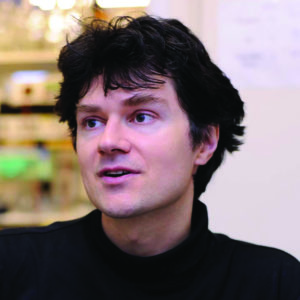Synthetic Genetics: Beyond DNA and RNA
Synthetic biology seeks to probe fundamental aspects of biological form and function by construction (i.e. resynthesis) rather than deconstruction (analysis). Synthesis thus complements reductionist and analytic studies of life, and allows novel approaches towards fundamental biological questions.
We have been exploiting the synthesis paradigm to explore the chemical etiology of the genetic apparatus shared by all life on earth. Specifically, we ask why information storage and propagation in biological systems is based on just two types of nucleic acids, DNA and RNA. Is the chemistry of life’s genetic system based on chance or necessity? Does it reflect a "frozen accident", imposed at the origin of life, or are DNA and RNA functionally superior to simple alternatives.
I’ll be presenting recent progress on the development and application of strategies to enable the enzymatic synthesis and reverse transcription and hence replication and evolution of novel synthetic genetic polymers, which we term XNAs. We show that eight different synthetic polymers, based on nucleic acid architectures not found in nature, can also mediate genetic information storage and propagation1. Beyond heredity, we demonstrate a capacity for Darwinian evolution by the de novo selection of specific ligands (XNA aptamers) and catalysts (XNAzymes) based on entirely synthetic backbones1, 2. Thus, key hallmarks of living systems, including heredity and evolution are not limited to DNA and RNA but can be implemented in synthetic polymers and are likely to be emergent properties of polymers capable of information storage.
I’ll also be presenting our progress in the engineering and evolution of RNA polymerase ribozymes towards a general polymerase and self-replication capacity, We have discovered RNA polymerase ribozymes that are capable of the templated synthesis (i.e. transcription) of another simple ribozyme3 or RNA oligomers exceeding their own size (>200 nts)4, a key milestone on the road to self-replication.
Presented by:
Phil Holliger, Ph.D.

Program Leader at the MRC Laboratory of Molecular Biology in Cambridge, UK
No slides availableNavigate the Site
2026 GoldLab Symposium
Save the date!
Please join on May 14-15, 2026Presenters In The News
Contact Info










